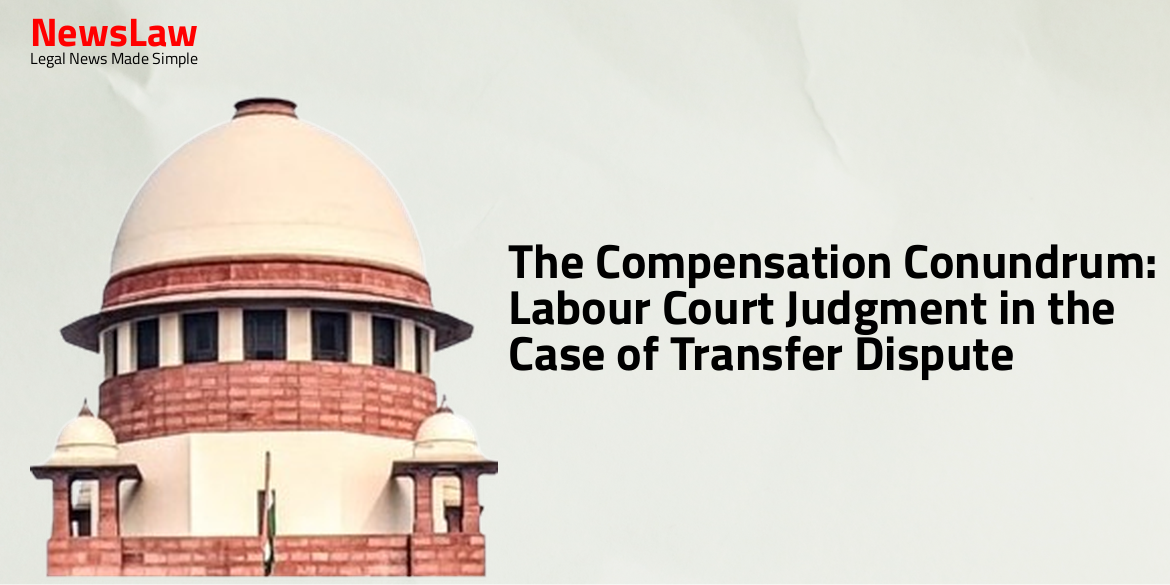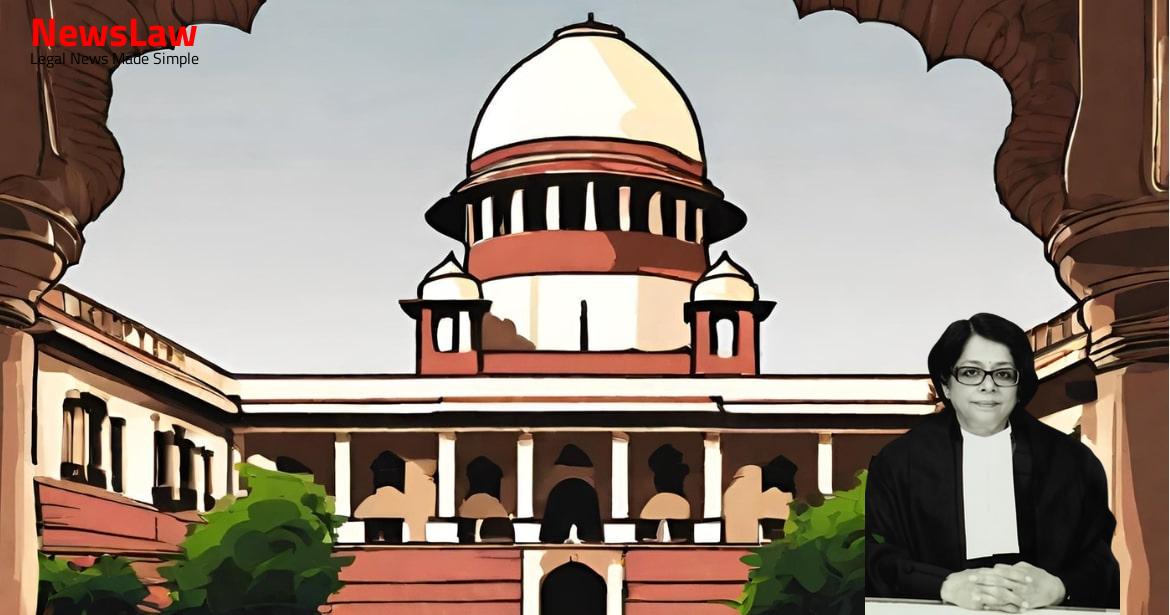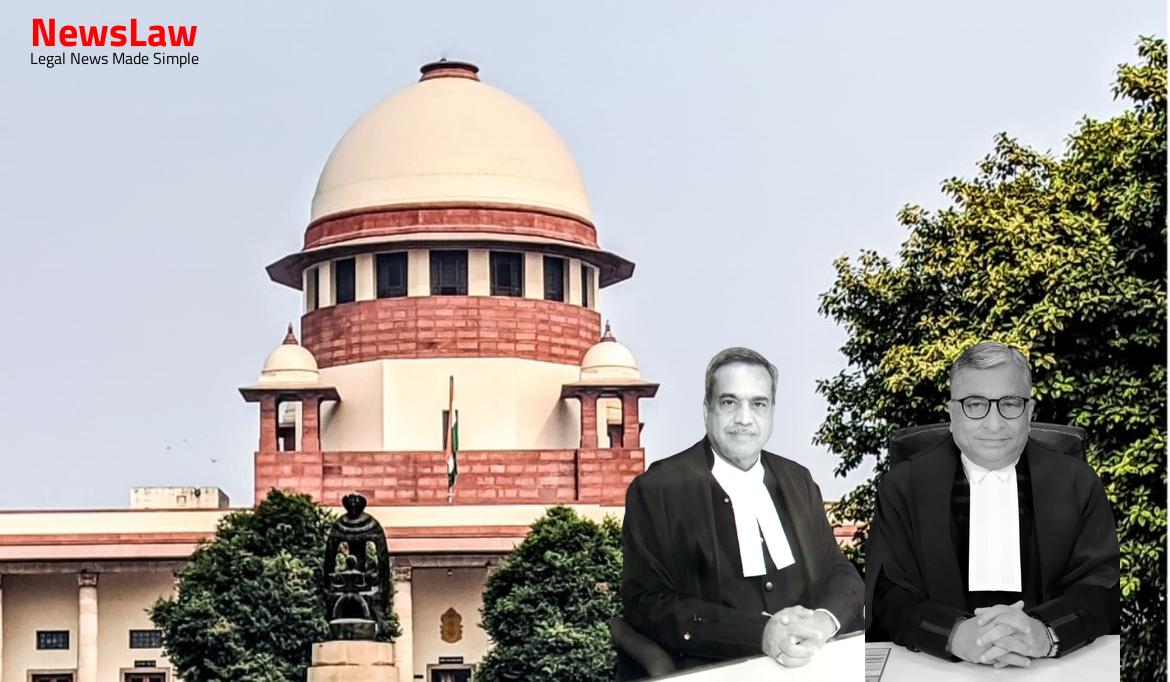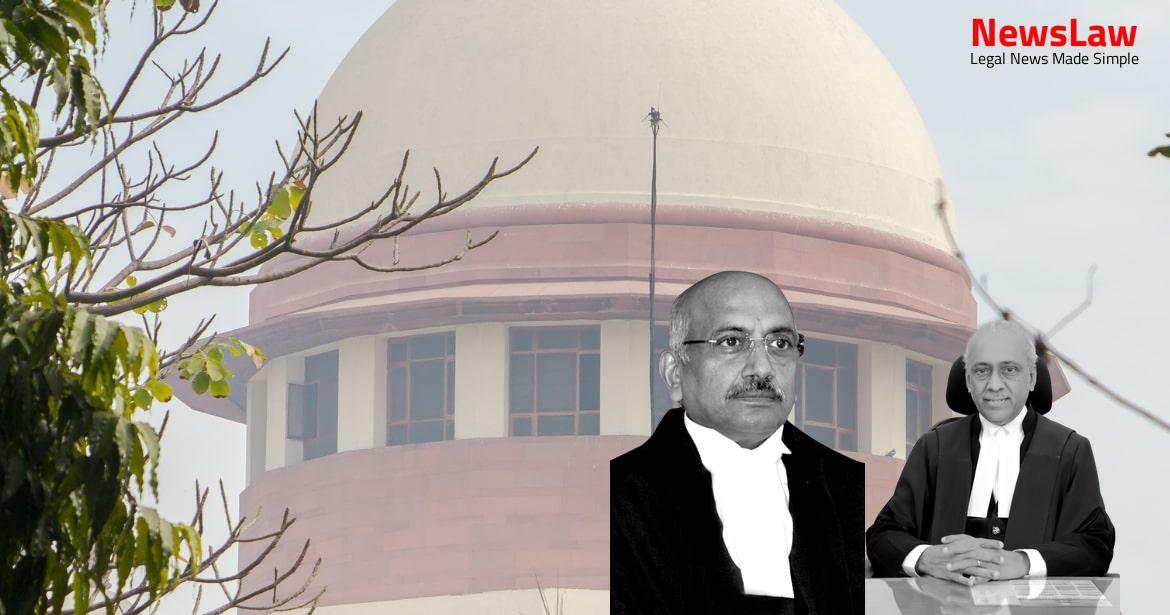In a recent judgment by the Delhi High Court, the legality and justification of a workman’s retrenchment were under scrutiny in a case involving a transfer dispute. The Labour Court directed the management to pay compensation to the workman, highlighting key aspects of labour law. Stay informed about this intriguing legal case!
Facts
- The Labour Court failed to appreciate that the workman has always been receiving the salary designated for unskilled work and did not object during his tenure.
- The stay of implementation was mistakenly linked to unrelated judgments, which did not apply to the current case.
- The urgency and lack of action in seeking a stay during the filing of the Writ Petition indicates no immediate need from either party.
- The lack of designation as ‘skilled’ in the Industrial Tribunal’s judgment aligns with the fact that ‘packer’ is classified as ‘unskilled’ as per the rates of wages for plastic, rubber, and PVC industries.
- Failure to acknowledge that if the designation matter is overturned by Delhi High Court, the impugned award would also be nullified as it is based on the same grounds.
- The Labour Court observed that Sections 9A and 25-N of the Act were not applicable in this case.
- The claimant did not work from the date of transfer until the date of rejoining, hence not eligible for retrenchment compensation during this period.
- The High Court of Delhi stayed the order declaring the transfer of 20 workers illegal in 2006.
- The claimant’s service was retrenched after several years had passed since the initial stay by the High Court.
- The Labour Court ruled in favor of the workman, awarding a compensation of Rs. 200,000 plus 9% interest per annum.
- Since reinstatement was not an option due to the management’s imminent closure, the workman was entitled to wages of skilled/semi-skilled category not paid by the management.
Issue
- Issue No 2 in the case pertains to the reliance on a stayed award dated 29 September, 2009 of the Industrial Tribunal by the learned Labour Court to determine the respondent’s entitlement to compensation.
- The Workman in question received the salary of ‘unskilled’ labor from the date of appointment till the time of retrenchment.
- The Stayed award raises the question of whether it can be used by the Labour Court to establish the respondent’s right to compensation.
- The primary issue for adjudication is whether the award passed by the Labour Court should be challenged under Article 226 of the Constitution of India.
Arguments
- The petitioner argues that the award dated 29 September, 2009, was passed without any documents and was stayed by the Court in Writ Petition No. 3014/2010.
- The petitioner contends that the workman was not working as a skilled worker, as claimed in the award, and was never cross-examined on this fact.
- The petitioner asserts that the impugned award should not have been passed as it was based on the stayed award of 2009 and the designation matter was yet to be decided.
- The petitioner argues that the compensation in the impugned award was based on the designation awarded in the 2009 award.
- The petitioner claims that the workman had been in service for 16 years and his age and inability to find another job should be considered for retrenchment compensation.
- The petitioner argues that the Labour Court failed to appreciate the petitioner’s written statement requesting a decision after the designation matter was resolved.
- The petitioner contends that the Supreme Court and High Court judgments cited by the Labour Court are not applicable to the current case.
- The petitioner argues that the workman had never objected to his salary as an unskilled worker and that the Labour Court erred in its decision.
- The Ld. ARM argued that granting designation to the claimant has been stayed by correctly calculating retrenchment compensation and notice pay based on their last drawn wages, not as per the award dated 29.09.2009.
- It was pointed out that the claimant had previously filed a case against their transfer, where it was determined by POIT that they were performing an unskilled job.
- The award from the transfer case was not contested by the claimant before any forum, making it final and operating as res-judicata.
Analysis
- The Labour Court held that the management violated Section 25F of the Act by not compensating the workman properly.
- The workman was entitled to compensation based on the skilled/semi-skilled worker designation as per the Industrial Tribunal’s 2009 award.
- The management failed to calculate notice pay and compensation as per the 2009 award, leading to inadequate compensation.
- The workman did not challenge the seniority list prepared by the management, indicating lack of evidence against it.
- The award was passed considering the designation awarded in 2009, despite it being stayed in a later writ petition.
- The employer violated Section 25F by not compensating the workman based on the skilled/semi-skilled category, as determined by the POIT.
- The finding of the POIT establishes that the workers were entitled to the designations they claimed and were working in skilled/semi-skilled categories.
- The Labour Court rightly awarded compensation aligning with the designated categories, as per the evidence presented.
- Section 144 CPC allows for variation, reversal, setting aside of a decree, including in interim stages.
- The successful party at the end can demand restitution to be placed in the same position as if the final decision was made earlier.
- Case examples highlight the obligation of restitution in various scenarios.
- A specific case illustrates recoverability of amounts once an interim decision is reversed.
- Interest on royalty stayed under interim orders becomes payable on dismissal of the writ petition unless specified otherwise.
- The court must restore parties to their pre-stay positions upon dismissal of the substantive proceedings.
- The importance of distinguishing between quashing and stay of proceedings is emphasized.
- The effect of temporary injunctions on payment obligations with interest is discussed.
- Judicial precedents emphasize the payment of compensation to workmen in case of genuine closures due to financial difficulty.
- Section 25-F of the Act outlines conditions for the retrenchment of a workman.
- Employer must provide one month’s notice or pay wages in lieu of notice for retrenchment.
- Compensation equivalent to fifteen days average pay for each year of continuous service is to be paid to the workman at the time of retrenchment.
- Continuous service for at least one year with the employer is mandatory for the workman to claim compensation under this Section.
- In L. Robert D’Souza v. Executive Engineer, S. Rly., the Supreme Court emphasized the requirement of continuous service for retrenchment.
- Compliance with the conditions of Section 25-F is essential for the valid retrenchment of a workman.
- Petitions do not have merit as per the findings of the Labour Court.
- The management failed to present any convincing arguments in their favor.
- Labour Court consistently found illegal retrenchment by the management due to insufficient compensation.
- Petitioner management did not compensate workmen based on their designated roles.
Decision
- The issue before the Labour Court was two-fold: legality and justification of workman’s retrenchment.
- The management is directed to pay Rs.2,00,000/- to the workman within a month of the award publication.
- Interest of 9% per annum to be paid in case of delay in payment.
- Each party to bear their own costs.
- Award upheld by the Court, and petitions dismissed.
- Compensation to be paid to workmen within three months.
- Judgment to be uploaded on the website immediately.
- The impugned award in all connected petitions is upheld.
- Pending applications also dismissed.
- Decision of Labour Court upheld by the Court.
Case Title: SAWHNEY RUBBER INDUSTRIES Vs. SH. NARAYAN SINGH (2024:DHC:4569)
Case Number: W.P.(C)-7964/2020



